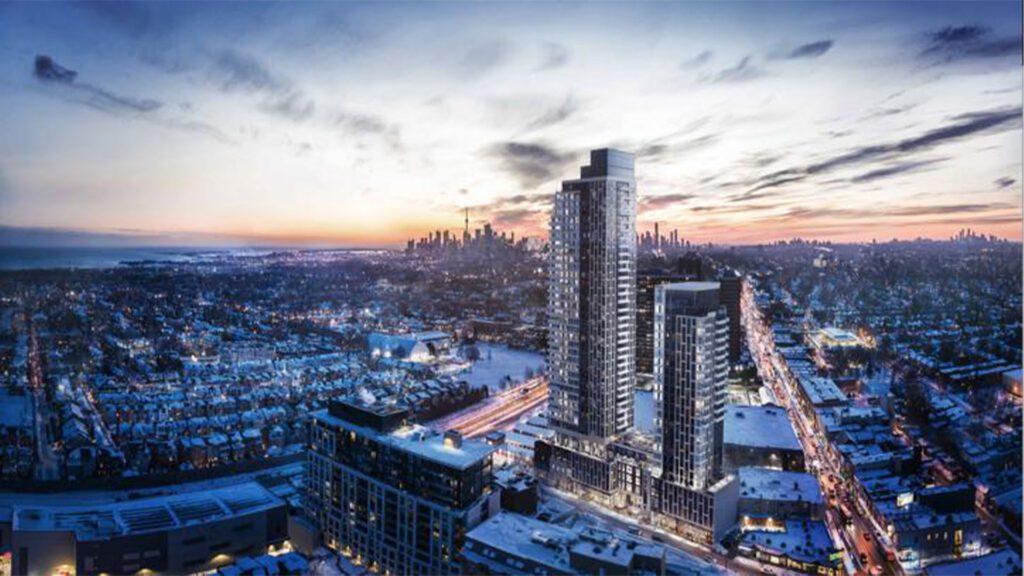It appears that the down payment necessary to purchase such a house gets dragged along for the ride as real estate prices and interest rates shatter records every month, surging into amounts that are challenging or impossible to save. For first-time homebuyers who want to have their own small place to call home, this is a nightmare. They make sacrifices and save money, only to discover when they achieve their goal that prices have gone up once more and their dream is just out of reach.
The First-Time Home Buyer Incentive: How Does It Work?
First-time homebuyers can receive assistance with their down payment and increased equity at the start of their mortgage through the First-Time Homebuyers Incentive, a program run by the Canadian government.
For buyers who meet the requirements, the government will contribute 5% of the cost of a resale property or 5% or 10% of the cost of a newly built home. A second mortgage on the property’s title secures the incentive, but no ongoing principal payments are necessary. The loan has no interest and there are no fees associated with early repayment.
Why does it matter to Canadians?
According to a recent poll , many Canadians still have trouble finding affordable homes. The federal government has provided an incentive to help bear the weight of those expensive mortgage payments in order to assist Canadian homebuyers in getting their foot in the door. The incentive went into effect in September 2019, and over the following three years, $1.25 billion will be allocated to the initiative.
Even though the FTHBI has been in place for a while, uncertainty persists. Is this a loan? without regular payments or interest? Moreover, there is no specified sum that must be paid?
What to think about before submitting a First-Time Home Buyer Incentive application
The fair market value of the property serves as the basis for the FTHBI loan.
- When the house is sold or 25 years have passed since the loan was taken out, whichever comes first, the debt must be settled.
- Although the loan has no interest, because it is a “shared equity mortgage,” the government will receive a portion of any increases in the value of the property.
- Alternatively, if your home’s value drops, you’ll have to pay back less to the government than you borrowed.
For illustration, suppose you accepted the five percent incentive on a $200,000 home (wishful thinking! ), which would amount to $10,000. You would be required to pay back 5% of the current value, or $15,000, in the event that you sold your home for $30,000 or it climbed in value to $30,000 after 25 years. On the other hand, you would only be required to pay back $5,000 if the home’s value dropped to $100,000.
Once you’ve found the house you’re searching for, been pre-approved for a mortgage, and decided you’re qualified to apply for the First-Time house Buyer Incentive, complete the application papers and provide them to your lender, who will submit the application on your behalf. Before you close on the house, all of this must be completed.
Is the First-Time Home Buyer Incentive available to me?
The FTHBI is designed to assist middle-class homebuyers who require assistance. So, in order to be eligible:
the borrower must be purchasing their first home and their household income must be under $120,000.
The maximum mortgage amount is $480,000, which is equal to four times the maximum household income of $120,000. Accordingly, a home would typically cost between $500,000 and $600,000, depending on the down payment.
Is the First-Time Home Buyer Incentive available to me?
The FTHBI is designed to assist middle-class homebuyers who require assistance. So, in order to be eligible:
- A first-time homebuyer must be the borrower.
- The borrower’s household income cannot exceed $120,000.
- The maximum mortgage amount is $480,000, which is equal to four times the maximum household income of $120,000. Accordingly, a home would typically cost between $500,000 and $600,000, depending on the down payment.
In Canada’s most expensive cities, new qualification requirements go into effect.
For people purchasing a house in Toronto, Vancouver, or Victoria, three of Canada’s most expensive markets, new FTHBI eligibility requirements were recently published. To be eligible, first-time homebuyers in these cities must:
- Should earn no more than $150,000 per year as a household (up from $120,000).
- Might now borrow up to 4.5 times their household’s annual income.
Their purchasing power would rise from $505,000 to around $722,000 as a result. All other Canadian regions are still subject to the stricter regulations.
You can check a statistical area map online to confirm whether your residence is located in the Toronto, Vancouver, or Victoria metropolitan areas if you are still unsure. The Program Administrator will provide confirmation of the property’s location.
Will the First-Time Home Buyer Incentive actually be of any assistance?
The FTHBI’s value has been questioned by some, who claim that it won’t do much to aid homeowners in Canada’s most expensive housing markets—those who most need the incentive. The incentive’s original ceiling was $480,000 in its first incarnation. This is where housing prices in various cities stood in 2021 and where they are predicted to go in 2022, according the reports:
Toronto:
$1,075,636 (2021)
$1,257,257 (2022)
Vancouver:
$1,097,000 (2021)
$1,313,000 (2022)
Victoria:
$885,117 (2021)
$1,017,292 (2022)
Additionally, only one-third of those who applied for the incentive were from Canada’s largest cities, according to the media, and homebuyers don’t appear to like the concept of the government owning an interest in their property.
The choice ultimately comes down to taste. For those who are genuinely suffering to buy their first house, the First Time house Buyers Incentive offers a solution, although some people might not enjoy the thought of owing money to the government. Integratto Group can provide you with further information and assist you in making an informed decision if you are unsure about whether the First Time Home Buyers Incentive is the best option for you.





